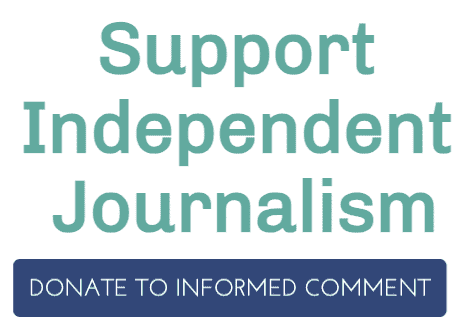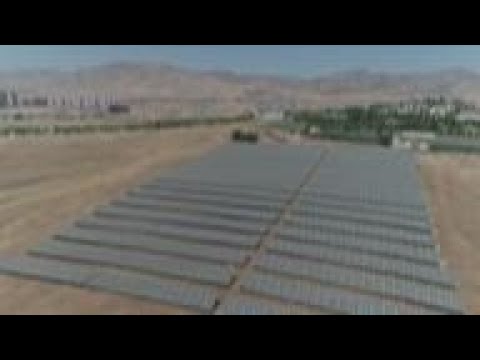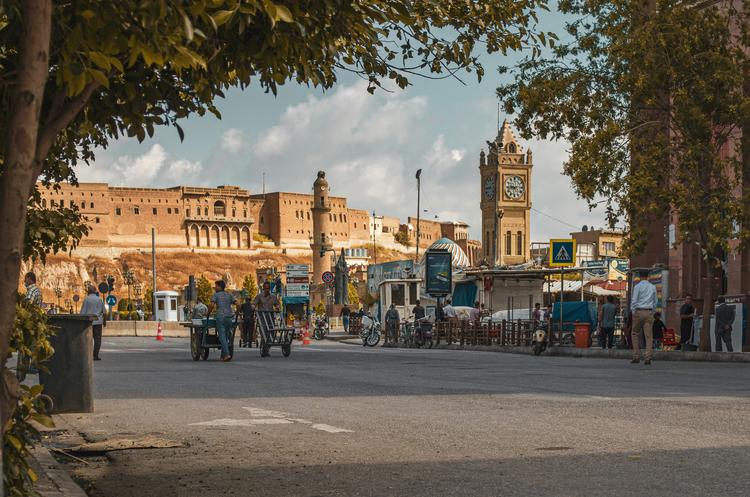Ann Arbor (Informed Comment) – Iraqi Kurdistan is developing an interest in sustainable energy, despite being an oil exporter via Kirkuk. Solar provides little of Iraq’s electricity at the moment, but the situation is set to change rapidly over the next decade.
The Kurdistan Regional Government (KRG) has set a goal of putting in 3 gigawatts of solar power by 2033. It has already commissioned three solar farms that will produce 350 megawatts all together, or about ten percent of the goal.
Only a third to a half of Kurdistani households have 24-hour reliable electricity, despite the government-backed Rawnaq program that aims at ensuring power to all KRG residents, and which has greatly expanded electricity provision. The KRG hopes to provide all 6.5 million residents with consistent electricity by the end of 2026.
More reliable electricity is also driving many Iraqi Kurds to switch to affordable Chinese electric vehicles, which can be bought for less than $20,000. Although Iraqi Kurdistan has relatively cheap gasoline, it is often of low quality and it is still more expensive than running an EV, especially if the driver has rooftop solar.
Solar is good politics. The government of President Masrour Barzani has installed solar panels at 81 schools “across Erbil, Sulaimani, Duhok, Halabja, Kirkuk, and independent administrations . . .” Schools had suffered from brownouts and blackouts, which are especially hard on children in the hot months since the air conditioning cuts out. Moreover, many school rooms depend on artificial lighting, so a blackout makes it impossible to continue lessons. Diesel generators were used for backup, but they can damage the health of children and teachers by putting particulate matter into the air. Now, these schools have uninterrupted clean power.
Barzani has committed $3.8 million to expand the solar program to 76 more schools.

Or by check:
Juan Cole
P. O. Box 4218,
Ann Arbor, MI 48104-2548
USA
(Remember, make the checks out to “Juan Cole” or they can’t be cashed)
At the household level, the KRG has established a program to provide credit to households that want to install rooftop solar. This program appears to have kickstarted a move to solar installations by Iraqi Kurdish businesses and families this year. Banks are also providing credit for home solar systems.
The Kurdistan news agency Rudaw last year quoted solar installer Mawlud Jamil in the capital of Erbil: “We used to install solar panels once every one or two months. And that was only for big companies and NGOs. But now ordinary people have also taken an interest. We are now installing solar panels daily in the city and in villages.” No estimate can easily be made of the contribution of rooftop solar to the Kurdistan grid because homeowners are not required to provide their generation statistics to the government.
Never miss an issue of Informed Comment: Click here to subscribe to our email newsletter! Social media will pretend to let you subscribe but then use algorithms to suppress the postings and show you their ads instead. And please, if you see an essay you like, paste it into an email and share with friends.
The Ministry of Agriculture is also distributing solar systems to farmers to power their irrigation pumps. Kurdistan 24 quotes a farmer at Qushtapay Gawra in the Erbil Plains: “We always need water 24/7 to irrigate the fields, especially during recent years of drought. The national grid could not provide consistent electricity due to widespread outages. Solar energy became our solution, supplying enough power for both the irrigation system and the house. Most families around here have installed this system, which provides an amperage of 8-10 amps, sufficient for our needs.”
Last May, Iraq’s first all-solar village, Hulak, was inaugurated by the government with 195 solar panels powering “36 residences, as well as a mosque, school, and community center.”
AP: “First on-grid solar power plant installed in Dohuk”

First on-grid solar power plant installed in Dohuk
Several other villages in Kurdistan have gone solar even without this government backing.
The trend is just beginning, and unlike in Iraq proper it doesn’t seem mainly to be government-driven. As in Pakistan and Brazil, households and businesses are installing their own solar panels, out of dissatisfaction with the state delivery of electricity.
Officials in Sulaimaniyah governorate said this month that in August and September some 700 households had installed solar panels. These installations more than doubled the households with such systems to 1,746, suggesting that the governorate is at the beginning of a rush to solar by families.

File photo of Erbil by Hisham Yahya on Unsplash
Some 90% of the panels used are Chinese-made, and a household system can be put in for $2,000. Because it can reduce electricity costs by $100 a month, the system pays for itself in less than two years.
Because Kurdistan, like the rest of Iraq, has frequent electricity outages, families and businesses run diesel generators some of the time, which are highly polluting and much more expensive than solar power. Moreover, their use means that people are burning a petroleum product domestically that could have been exported for profit. Solar panels would solve this problem.


 © 2026 All Rights Reserved
© 2026 All Rights Reserved